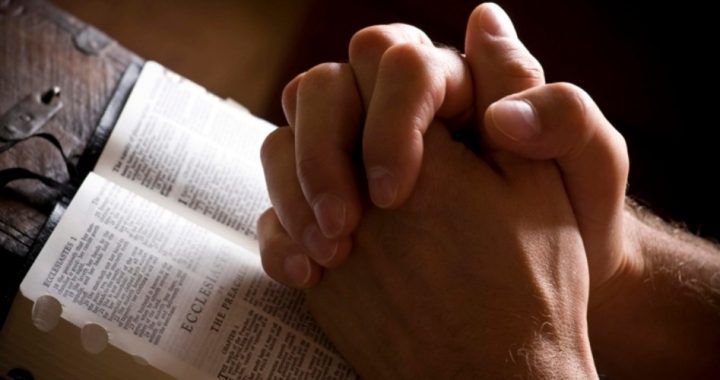
A March 2012 survey of November’s likely voters suggests that a person’s faith plays a considerable role in the issues he cares about and his decision about which presidential candidate to support. One thousand and five adults, randomly chosen from across the 48 continental states, were screened regarding voter registration, voting intent, and perceived importance of this year’s election to select a base of 647 likely voters. Five segments — evangelicals, non-evangelicals, non-evangelical born-again adults, notional Christians, and adults of other faiths and religious skeptics (atheists, agnostics) comprised the sample group. The results of the nationwide survey conducted by the Barna Group (released in April) revealed some surprises.
Persons of faith, especially evangelicals, are often perceived to be primarily concerned with issues such as gay “marriage” or abortion. Of the five segments defined for survey purposes, evangelicals indicated the highest level of influence of faith in their lives. In regard to their differences from the other four segments, they believe they have a personal responsibility to share their faith, that Satan exists, that eternal salvation is possible only through grace, and that God is all-knowing. Abortion, which ranked last in importance among the entire survey group, clocked in at third place among evangelicals, behind taxes and healthcare. Gay marriage (tenth on the list of potential voters) placed fifth among evangelicals. Of the 12 issues presented to respondents, the issues least likely to influence the candidate choice among all likely voters were gay marriage, environmental policy, and abortion.
In fact, Barna’s survey report stated, “Among all likely voters, regardless of their faith inclinations, the most influential issues are health care (said to influence their candidate selection “a lot” by 74 percent of likely voters), tax policy (62 percent), employment policies and strategies (54 percent), and plans regarding the nation’s dependence upon foreign oil (52 percent).” Skeptics rated gay marriage as a more influential issue than did evangelicals, ranking education and environmental policy as their lowest priorities.
Barna’s report noted that evangelicals “differ from the pack” in several areas. Behind healthcare, taxes rated second for them. But educational policy, for instance, ranked tenth — they are largely unsupportive of government involvement in the schooling of their children. They also continued to indicate little interest in environmentalism — only one of five said it was a top concern to them.
The study also revealed “a huge divide between evangelicals and their non-evangelical born again brethren.” Non-evangelicals are defined as having made a personal commitment to Jesus Christ that is still important in their life today and who also indicated they believe that when they die they will go to heaven because they had confessed their sins and had accepted Jesus Christ as their savior. “Although both groups consist of born again individuals, there was a gap of 34 percentage points between them regarding the importance of abortion as a candidate selection issue, and a 29-point gap related to gay marriage,” but these two groups both considered America’s reliance on foreign oil as critical.
Non-evangelicals (74 percent) found a candidate’s position on taxation more important than any other segment, compared to 57 percent of all other likely voters. This segment was also more focused on employment policy and jobs.
Skeptics ranked education and environmental policy as second and third most important issues to them (behind healthcare), with taxes claiming sixth place ahead of dependence on foreign oil at eighth.
Barna’s survey also revealed that the priorities of Protestant and Catholic respondents generally were similar, varying only on the issues of immigration, gay marriage, healthcare, and education policy as important core issues.
Of particular importance, the Barna team also examined how “religious engagement correlates with election priorities.” They found, once again, that people who are most engaged in their faith also tend to be more active in social and political matters. Those respondents who had read the Bible, attended services, and prayed during the week were substantially more likely than those less active in their faith to signify a candidate’s position on abortion, gay marriage, and dependence on foreign oil as important to them. Those less active were more likely to place importance on environmental policies.
This survey also found that issues of concern to independent voters — those aligned with neither major party — don’t differ much from the electorate at large, with the exception of job creation, which they rate higher than other voters. Republicans rated positions on immigration reform, defense against terrorism, and dependence on foreign oil as issues of importance to them in a candidate. Democrats’ critical issues included education and environmental policies, and handling of Middle East tensions.
Barna’s analysis of the survey raised interesting points about the approach to these issues by President Obama and Mitt Romney. For instance, the team noted that “political pundits are claiming that to attract the Hispanic vote candidates will have to promote an attractive package of immigration reforms,” but this survey reveals that immigration is more significant to white voters than Hispanics. The Supreme Court had not yet handed down a decision on ObamaCare at the time of the survey, but Barna’s conclusion that both candidates will have to tread lightly on the issue of healthcare still holds. And finally, neither candidate has put forth any new and significant proposals about the second and third most important issues to this survey’s respondents — jobs and taxes. Nor has either had any substantive discussion about oil dependency.
A similar survey conducted by the Pew Research Center resulted in similar findings, with the economy, jobs, budget deficit, and healthcare topping the list of concerns. As with Barna’s findings, Pew’s respondents listed abortion and gay marriage as least important to them.
Critics have noted that this year’s choice of candidates isn’t much of a choice, as is often the case in a presidential election year, but this time the stakes are much higher, and voters’ concerns about healthcare aren’t likely to go away.



